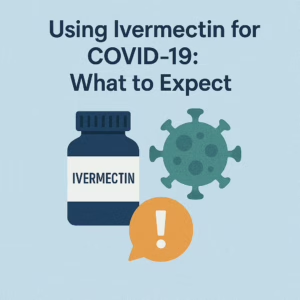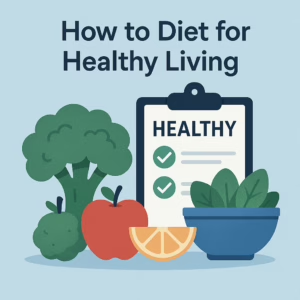We’ve all heard about the importance of taking vitamins, but it’s easy to get overwhelmed with so many options. With so many choices, it can be hard to know what’s truly important for your health. Vitamins play a key role in supporting your immune system and helping your body function at its best. In this article, we’ll share which vitamins are essential for daily immune support and how they work so you can keep your body healthy every day.
Vitamins for Immune Support
Your immune system is complex, so it needs lots of vitamins and minerals to function properly. Here are some of the most important vitamins to include in your daily routine to keep it strong.
Vitamin C
Vitamin C is one of the most well-known vitamins for immune support. This vitamin stimulates the production of white blood cells, which help fight off infections. Vitamin C is also an antioxidant and helps protect cells from damage caused by harmful molecules called free radicals. This special vitamin is often associated with faster wound healing and reduced inflammation.
Vitamin C can naturally be found in citrus fruits like oranges, lemons, and grapefruits, but can also be found in strawberries, bell peppers, kiki, and broccoli. It’s recommended that adults intake 75mg of Vitamin C per day for women, and 90mg per day for men.
Vitamin D
Vitamin D is another critical vitamin for immune health. Vitamin D regulates the immune response and supports the production of antimicrobial proteins that help protect against infections. Research shows that low Vitamin D results in a higher risk of viral infections.
Many people don’t get enough Vitamin D every day, especially in the colder winter months when people spend more time inside.
This important vitamin can be found naturally in foods like fatty fish, fortified dairy products, and egg yolks. It is also produced naturally in the body when exposed to sunlight. Most adults need 600-800 IU of Vitamin D per day, but some may need more, especially if they don’t get enough sun exposure.
Vitamin A
Vitamin A is essential for maintaining the health of your skin, respiratory tract, and gut lining. These are three of the body’s first lines of defense against infections like bacteria and viruses. In particular, Vitamin A maintains the integrity of mucosal barriers in the respiratory and digestive systems, which are protective shields against infections.
This vitamin can be found in both plants and animals, including liver, eggs, dairy, carrots, and spinach. Women should aim for 700mcg per day, while men should aim for 900mcg.
Vitamin E
Vitamin E, like Vitamin C, is an antioxidant that protects immune cells from damage. It also improves immune responses by bolstering T-cell activity, especially in older adults. Adults should aim for 15mg daily and can find this vitamin in foods such as nuts, seeds, spinach, and sunflower oil.
B Vitamins
Finally, B vitamins, such as B6 and B12, are key in strengthening the immune system. These diverse vitamins help produce red and white blood cells and support your energy levels.
Though it varies by type, adults should aim for 1.3-2.4mcg of B vitamins per day. They can be found in foods such as whole grains, meat, eggs, dairy, leafy greens, and fortified cereals.
Minerals Supporting Immune Health
Minerals are just as important as vitamins for immune support. Including these minerals alongside your vitamins can give your system the extra support it needs to stay strong and responsive.
Zinc
Zinc plays an important role in immune cell development and communication. This mineral activates enzymes that break down invading bacteria and viruses and supports wound healing. It also helps produce T-cells, which help the body recognize and fight off infections and reduce inflammation.
Zinc is found in many foods, including meat, shellfish, legumes, nuts, seeds, and whole grains. However, vegetarians should keep in mind that plant-based sources of zinc are not as easily absorbed by the body, so they may need additional supplements.
Selenium
Selenium is another powerful antioxidant along with Vitamins C and E. This mineral reduces inflammation and boosts the activity of white blood cells which helps the body fight viral infections. Foods that contain high amounts of selenium include Brazil nuts, seafood, eggs, and poultry.
Magnesium
Magnesium supports hundreds of biochemical reactions in the body, including those in the immune system. It helps reduce chronic inflammation and supports energy production so you can feel energized throughout the day. Women need around 320mg per day, while men need 420mg per day.
Foods high in magnesium include leafy greens, nuts, seeds, whole grains, and legumes.
Tips for Choosing the Right Vitamin Supplements
Getting the right balance of vitamins and minerals is important for maintaining a healthy body, but choosing the right supplements can feel overwhelming with so many options. Here are some tips to help you find high-quality, safe vitamins for immune support.
- Talk to a Healthcare Provider
It’s a good idea to talk with a healthcare provider before adding any supplements to your routine. Everybody has different needs based on age, diet, lifestyle, and other health concerns. A professional can help recommend specific vitamins or tests to check for deficiencies depending on your personal needs.
- Look for Third Party Testing
When shopping for supplements, look for brands that undergo third-party testing by independent organizations, such as USP or NSF International. These organizations test supplements for purity, potency, and safety, so you can take your vitamins confidently.
- Avoid Mega-Doses (Unless Directed)
More isn’t always better when it comes to vitamins. While taking more might seem like it will supercharge your immune system, taking too much can harm your body. For example, too much Vitamin C can cause digestive issues, and too much zinc can weaken your immune response. Stick to the recommended daily values unless your doctor recommends otherwise.
- Focus on Quality Over Marketing Hype
Many supplement companies use flashy marketing to attract customers. Phrases like “miracle formula” can sound appealing, but are often more about marketing than science. Don’t fall for catchy slogans – check the ingredients and look for supplements that use high-quality vitamins.
Final Thoughts
Supporting your immune system doesn’t have to be complicated. By recognizing which vitamins and minerals play a key role in your health, you can make informed choices about your body.
Unsure where to start? Check out All Family Pharma to find high-quality vitamins and minerals to help strengthen your immune system.




